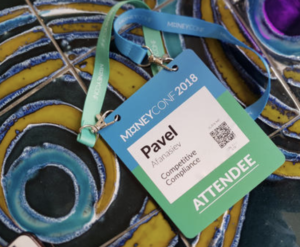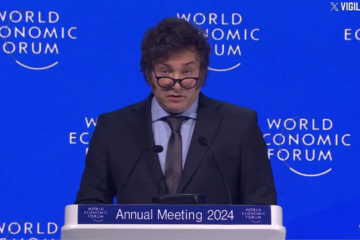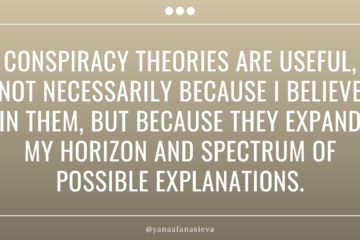MoneyConf 2018 Dublin

There were quite a few brilliant discussions and panels on a range of topics, for some of which the blockchain-/crypto-community remains split or, at least, undecided. Here’s an oversight of what we heard and observed:
1) Banks: Friends or foes?
This one is perhaps the most straightforward one from the batch: Banks all over the world are rightfully criticized for being too bureaucratic, too slow, too expensive and not sufficiently customer-centric. They charge exuberant fees, they are slow in provision of their key services, and they commit fraud (sometimes). On top of that, they are accused of regulatory capture in certain places (we’ll come back to that) and they are, by nature, very conservative institutions, keen on maintaining their existing profit pools.
However, the world’s financial system and trade runs through the banks in far greater proportion than it does through blockchain (for now), and some forward-thinking banks are becoming more open to partnerships and cooperation with the fintech industry. They do it not so much out of ardent love for fintech firms, as much as for the sake of competing with each other and capturing new streams of revenue. And because the banks’ clients themselves have been asking for exposure to the new asset class that the cryptospace represents.
In that sense, the much-despised greed of traditional bankers is a bliss for some actors in the payments space. Under the condition that you are lucky enough to find a bank that wants to talk to you, of course.
2) Which token form is the way forward for crypto?
There has been a lot of debate about this, with a surprising number of high-profile self-proclaimed conservatives saying that the rise of the utility and loyalty tokens is a temporary aberration, rather than the future norm for ICOs. Some have gone as far as to say that Ether itself is a security token and should be regulated as such. Luckily for the rest of us, a recent statement by US SEC says that Ether itself is not a security, but individual tokens based on it can be such (https://techcrunch.com/2018/06/14/sec-says-ether-isnt-a-security-but-tokens-based-on-ether-can-be/?guccounter=1)
Needless to say, a whole lot of people — other than SEC — are disagreeing with this, since crowdfunding has existed already during the time of Odysseus all the way to Christopher Columbus all the way to Kickstarter, and non-security tokens allow for a lighter regulatory supervision and requirements. Also, empirically, it is quite hard to argue that there are going to be more security tokens issued in the near future, compared to other types of tokens.
3) Regulations: Global vs local vs self-regulation / clarity or obscurity?
Unsurprisingly, regulation was a huge topic all across the board. Here too, there was a lot of on-stage and off-stage disagreement, both about the necessity for crypto-specific regulation and the nature and form of any such regulation.
Some of the fintech leaders were holding firmly that it was important and useful to have clear, official guidelines (hello, Switzerland!) about what is allowed and how it should be done, because this is what responsible financial institutions should seek. However, 3 legitimate arguments have been put forward to counter this view, by different speakers: First, practically all jurisdictions already have regulations that outlaw fraud, in its many forms and ways. Second, there are regulators out there that are too weak, too corrupt or too submissive with regard to the incumbent giants of the financial industry, and are thus unable to diligently and impartially perform their regulatory duties (this one has been met nearly with standing ovations in the audience). Third, when discussing specifically AML/KYC procedures for crypto wallets, some displayed an aversion towards the idea of “the state regulating the nature or material of the wallet that I hold in my pocket”.
Equally legitimate counter-arguments could be made, of course: A huge number of speakers have talked about the need for clearer positioning and stance of regulators, some of which regularly contradict each other on a number of key issues — so the need is there, empirically. Assuming that all regulators are weak and corrupt does not help moving the business forward and undermines the goodwill that the fintech industry has worked so hard to obtain. Finally, the government may not regulate the material of a physical wallet (it probably does, if you think about crocodile skin… but I digress), but it strongly regulates the disbursement of cash from ATMs and the card industry — both items that constitute the contents of a traditional wallet.
This is probably the most important strategic conversation that the industry will be having over the next months, if not years.
4) Bitcoin: The only game in town?
Last but not least, one of the panels was dedicated to whether Bitcoin is the only game in town and whether or not it can ever be dethroned from its dominant position. Here, the split was between Bitcoin-maximalists (permanent Bitcoin superiority) and moderates (Bitcoin is the biggest game in town, but not the only one).
What was refreshing to see is a few speakers pointing out that any token that will answer to a widely experienced problem (and thus possess a natural use-case, rather than an invented one) could eventually challenge Bitcoin. What the “winner” use-case is going to be, for now, is a mystery — but a couple of guesses could include e.g. smart cities nudging inhabitants towards certain behaviours or the gaming industry.

